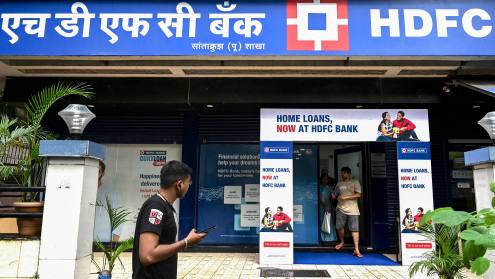Turkey’s economy has been on an unpredictable ride in recent times. Over the course of 2020, gross domestic product (GDP) actually expanded by 1.8%, thanks in part to a strong economic turnaround story that kicked in during the second half of the year.
The government’s fiscal support in response to the Covid-19 pandemic — equivalent to 13% of GDP — played a sizeable role in this positive outcome. At the same time, major macrofinancial weaknesses have flared up. Inflation, in particular, has been on the rise since early 2020, while the lira depreciated by almost 24% against the US dollar during 2020.
Given the unpredictability of Turkey’s economic landscape, it is perhaps surprising that the country’s leading banks performed quite well in 2020. This outcome, in many respects, reflects the sophistication and adaptability of Turkish bankers, who are adept at operating in a market that is both full of opportunity and challenges in equal measure.
Many lenders also benefited from strong lira-denominated loan growth over 2020, coupled with forbearance measures put in place by the regulator. The best-performing Turkish bank in the 2021 ranking is Turkiye Vakiflar Bankasi, with an overall performance score of 5.88. Notably, it takes first place with respect to its profitability, growth, operational efficiency, return on risk and liquidity, among the six largest Turkish banks.
In second position, with a score of 5.73 is TC Ziraat Bankasi, underpinned by a strong showing in terms of its operational efficiency, asset quality and liquidity, among other metrics. Meanwhile, in touching distance of TC Ziraat Bankasi is Akbank, which comes in third place with a performance score of 5.72.
Akbank topped the country table with respect to its soundness and leverage scores, while it also does well on the return on risk front. The bank’s performance over the review period was supported by its leadership’s efforts to improve asset quality, and it also benefited from ample liquidity and capital buffers.
Rounding out the best-performing Turkish banks is Yapi Kredi Bankasi in fourth place with a score of 5.55, Turkiye Is Bankasi in fifth place with a score of 5.49, and Turkiye Halk Bankasi in sixth place with a score of 5.48. Turkiye Halk Bankasi is notable for rating the highest in terms of its asset quality among all of the featured Turkish banks, while Yapi Kredi Bankasi is the second best-performing lender based on profitability.
Most Turkish banks have emerged from the Covid-19 crisis in pretty good shape. Efforts to clean up balance sheets and cut costs — which were taking place well before the pandemic hit — are bearing fruit. Looking ahead, Turkish banks are likely to face fresh challenges and opportunities in their home market, as the structure of the global economy continues to change at a rapid pace. However, their ingenuity and resilience should see them through to the next stage of their growth story.









